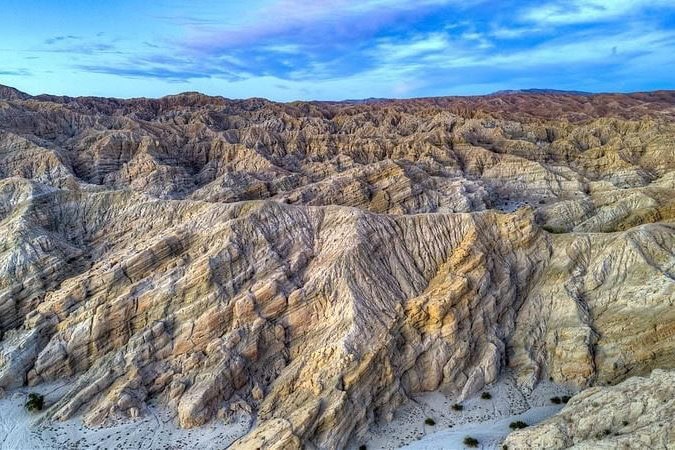Self-Defense, Solo Hikes, Safety and Empowerment: An Interview with Nicole Snell
As avid hikers, Bram and I are always aware of what potential wildlife we may come across when we venture out into the wilderness. From the East Coast to the West, we’ve had our share of animal sightings — bears, elk, bison, coyotes and snakes.
Some people may say we’re overly cautious, but we usually have bear spray on us on any given hike. In short, we like to be prepared.
But what about unsafe situations with people? And what about solo trekking? Although I’ve solo traveled abroad before, I, myself, have never hiked or camped alone.
In this post, I sit down with Nicole Snell, a solo hiker, adventurist, and expert in self-defense.
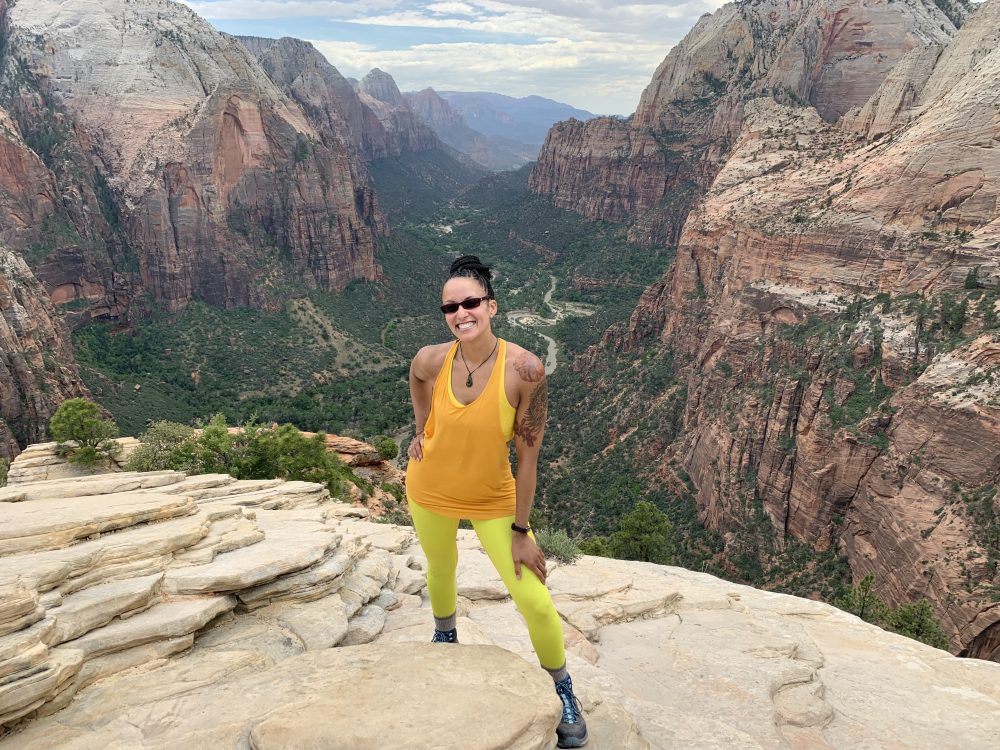
Nicole Snell on Self-Defense, Solo Hiking and Outdoor Safety
Caroline: Nicole, I’d like to start by talking about your background. Can you tell me a little bit about your experience in self-defense and how it’s become your career?
Nicole: Ever since I was a little girl, I’ve been an athletic person. I was always outside running around, playing sports. I took Judo or Jiu Jitsu, I think it was a combo of the two when I was in high school and I really loved it—I just liked the physical aspect of it. However, after taking Karate classes in college, I stopped practicing self-defense sports.
Then, a few years ago, a guy I was dating and I were play-wrestling in my apartment. He pinned me to the ground and I couldn’t get out of it. At that moment I was thinking to myself, well, this is fake right now, but what if it was real?
There was nothing in my brain that could tell me what to do in that type of situation. I’m the type of person who likes to be prepared for any contingency. I want to know how to handle things in case of an emergency. So, I took my first self-defense class, and I really enjoyed it.
Later, I started doing sexual assault prevention work and through a connection, I met the then-owners of Girls Fight Back.
They had an opening for a speaker three months later. Part of the training was to graduate from a 20-hour Impact Full Contact class, which I did. I worked my way up, became an assistant and a speaker for Girls Fight Back.
Then this year, I purchased it, so now I’m the owner of Girls Fight Back. I’m also a lead instructor for IMPACT. It’s a great feeling when you find that thing and you say to yourself, oh my gosh this is it, this is what I’ve been training my whole life to do, whether I knew it or not.
What I’m meant to do is help and teach people how to walk through life and be confident, knowing that they can protect themselves, take risks and not feel like they always have to be looking over their shoulder.
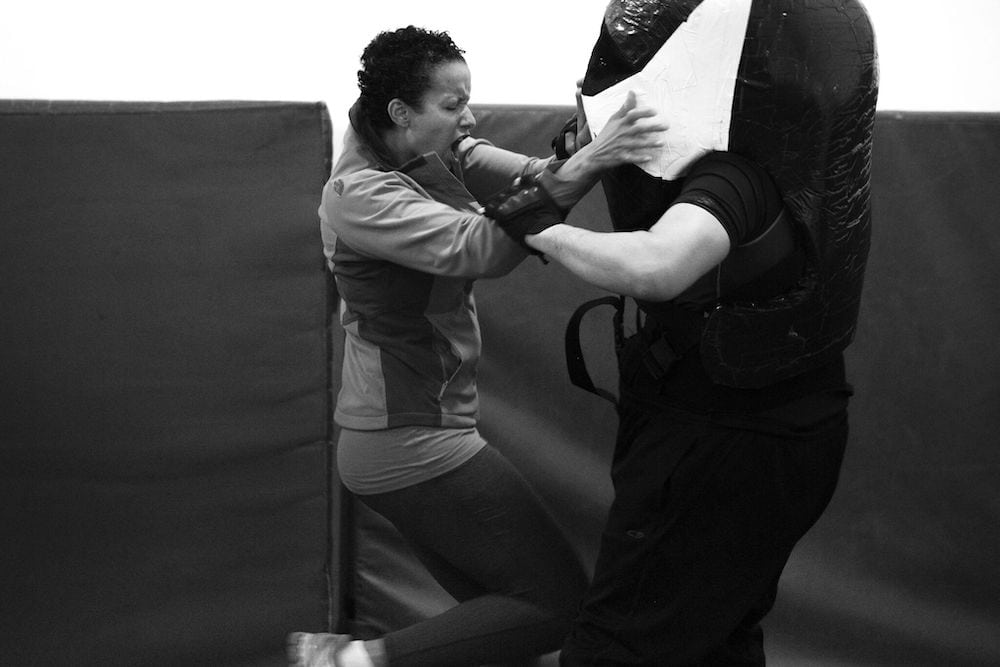
“Giving people tools and skills to address fears or a lack of confidence may enable them to do the things they really want to do.”
Nicole Snell
I know that you were always outdoorsy and really active, but were you doing solo adventures and hiking before you had this self-defense knowledge?
Yes [laughs]. Growing up in a small town, Twentynine Palms near Joshua Tree National Park, we had the whole desert as a playground. I collected rocks, caught lizards, explored, saw wildlife, and was all about nature. It never got old and I just loved being outside.
I took my first solo trip after I started working in production. We took a trip, traveling around the world, and went to Germany.
When we booked the Germany trip, I was like, you know what, Rome is right there, I wonder if I can just add on a few days and go visit. I did and it was so exhilarating to go to a new place. The only people I knew were halfway around the world and I was just on my own.
There are things in life that I want to do and I don’t want it to be on anyone else’s time. So, if you can come with me, great, but if you can’t, that’s not going to stop me. It never has and it never will. That’s just the type of person I am.
I know not everyone’s like that, which is why I feel like teaching people self-defense can be so important. Giving people tools and skills to address fears or a lack of confidence may enable them to do the things they really want to do.
While reflecting on why I had never hiked solo before, I realized part of it was not feeling comfortable by myself. What you’re doing sheds light on those fears and teaches people to combat them. It’s really incredible and so important.
Thanks! Another friend of mine, a man, told me he didn’t think a lot of women are afraid of hiking by themselves. Then he talked to his wife he was like, whoa, I had no idea that’s something women think about.
You know, maybe not on a conscious level all the time, but unconsciously we’re trained societally to think like: where are you going, tell someone where you are, what happens if this happens,…
All those things that we, women, have running through our brain, most men don’t have going on… It just opened his eyes.
I would love to talk about your Outdoor Defense series. What was the relationship between your love for the outdoors and your self-defense knowledge? How did you come up with this idea and move forward with it?
I have loved the outdoors and hiking my whole life. My solo trip to New Zealand and Australia and doing the Tongariro Alpine Crossing kicked my love for hiking into high gear. I became a hike leader for Black Girls Trekkin’, a local guide for Fjällräven, and I had this passion for teaching self-defense but didn’t know how to combine them.
Finally, I had a friend who said, you know what, you need to do it. She was the final kick in my butt to put these two things together. It’s hit a cord with people that I didn’t really expect. It resonates with people and I get messages telling me how important it is and how it changed their life. I mean, that just warms my heart. That’s why I do it.
The episodes aren’t telling people what to do, it’s just giving them options. It’s not either/or, it’s both/and. Whatever works for you. I try to be as empowering as possible and I just love it. I think it’s great I’m able to do two things I’m really passionate about and share that with the world.
I think a lot of people, when they’re hiking and recreating outdoors, are aware of potential encounters with wildlife. But can you talk about the importance of recognizing unsafe situations that might arise with other people on the trail?
Yeah, definitely. There’s that awareness you have when you’re worried about rattlesnakes, mountain lions or bears. Those are all creatures that live out in the wild and when we’re outside, we’re in their territory. We prepare ourselves. We look up what lives in that area and we know what to watch out for.
When it comes to people, we need to use those same tools that we use when we’re dealing with dangerous animals because dangerous people are dangerous animals. They’re predators. You use your awareness, intuition, you notice things that make you feel uncomfortable and you trust that feeling instead of trying to talk yourself out of it.
Yes, I think it’s essential to be aware of your intuition and follow your gut instinct in those situations.
One misconception is the idea of “stranger danger.” We hear about that a lot. Most sexual assaults and violence are perpetrated by someone known to the survivor, 82% of the time. So statistically, it’s not the stranger on the trail, but it’s your trail partner or a person in your group.
Those things are not as talked about as much. It’s important to trust your intuition, no matter what the person looks like, no matter how nice, charming or knowledgeable they are.
If you’re getting a feeling about them, trust that feeling and take whatever steps you need to to stay away from them. Use your awareness if something looks off and be willing to turn around. I’ve turned around on a hike before. I don’t second guess it. The trail will still be there tomorrow or later in the day.
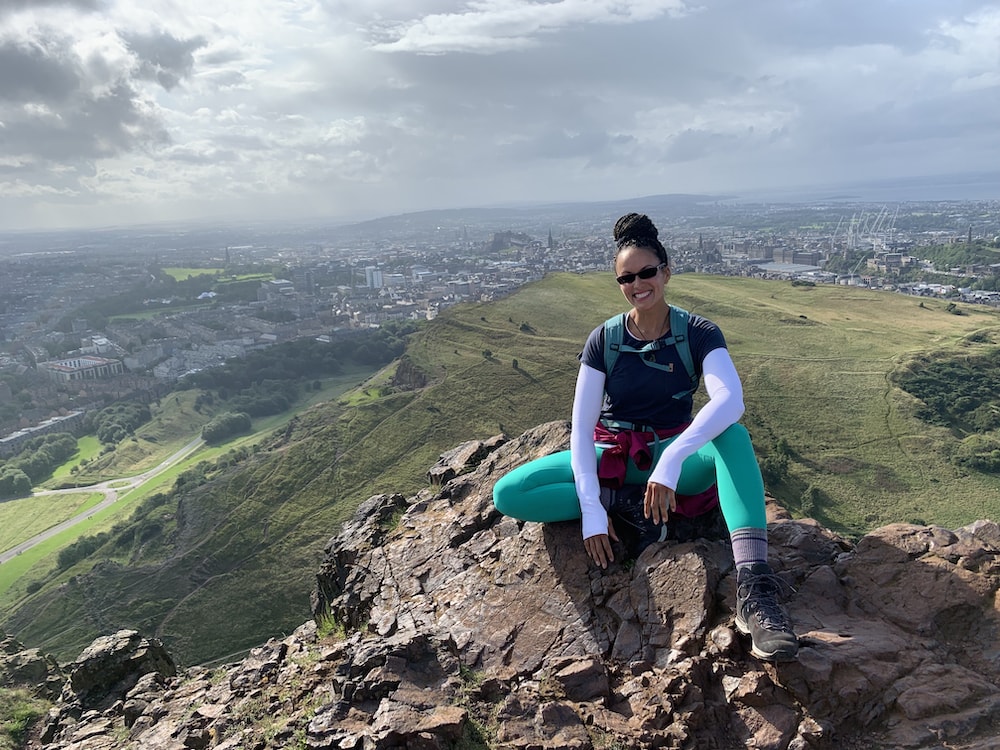
“Most sexual assaults and violence are perpetrated by someone known to the survivor, 82% of the time. So statistically, it’s not the stranger on the trail, but it’s your trail partner or a person in your group.”
Nicole Snell
Are there any other safety tools that are readily available to most of us?
Understand that using your voice is really important, too. I’ll speak in the binary because our society still is very binary. The societal stereotypes about people who identify as women and people who identify as men are still very polarizing.
Women in particular are taught to be quiet, to be nice, to not offend people, and these things are not necessarily great for our safety or comfort.
When we say, ‘Hey, that’s close enough’ or ‘I don’t like that you said that, don’t speak to me like that’, or ‘I really don’t like you standing so close to me, I need you to step back’, we’re speaking up for ourselves and we don’t need to apologize for it.
Those are things we can do on and off the trail. It’s a way we can help ourselves feel more powerful.
It’s so important that you mentioned you don’t need to apologize when you’re using your voice and stating what your boundaries are. If something is not okay, you should feel confident enough to say that and not have to apologize for it.
We don’t have to minimize ourselves. We don’t have to soften the message. We need to teach everyone how to accept the word “no”—to accept rejection. We also need to teach everyone how to be assertive while communicating.
Do you think the awareness process looks differently if you’re, say, solo hiking or solo adventuring in a different country? Can you talk a little bit about how that awareness process might be different in different places?
Yeah, I’m so glad you brought that up. Your awareness changes depending on where you are. You’re not the same every day. I’m gonna feel different first thing in the morning than I do at midnight, or in the middle of the day or before I’ve had lunch. Our body changes our awareness and it also changes based on where you are.
In IMPACT, we talk about the dynamics of the situation and what’s going on around you, which has a huge impact on your awareness. If you’re in another country, you may be hearing a language that isn’t a language you speak. You might not be able to pick up clues from what people are saying around you. Your intuition is still going to pick up on things that seem weird, but now you have those other things that you’re more aware of.
For me, I can say a few words in Japanese, but I don’t speak it. So, if I’m walking down a street, how am I going to know what street I’m on? Can I recognize a colored building or something else if I’m lost?
Now, it’s about looking around you and recognizing—noticing—things. And if something looks off, give yourself permission to accept what you’re seeing instead of denying it. If we deny it, we aren’t thinking about how to address it. If we accept what we see as real, then we can start problem-solving how we’re going to handle it.
Yeah, it’s important to recognize that context really does matter in the awareness process, especially if you’re somewhere new.
And don’t be afraid to ask for help. Just because I teach self-defense and have all this training doesn’t mean I put myself in dangerous situations. I don’t think like, I know everything, I’m not gonna ask for help. Ask for help if you need it.
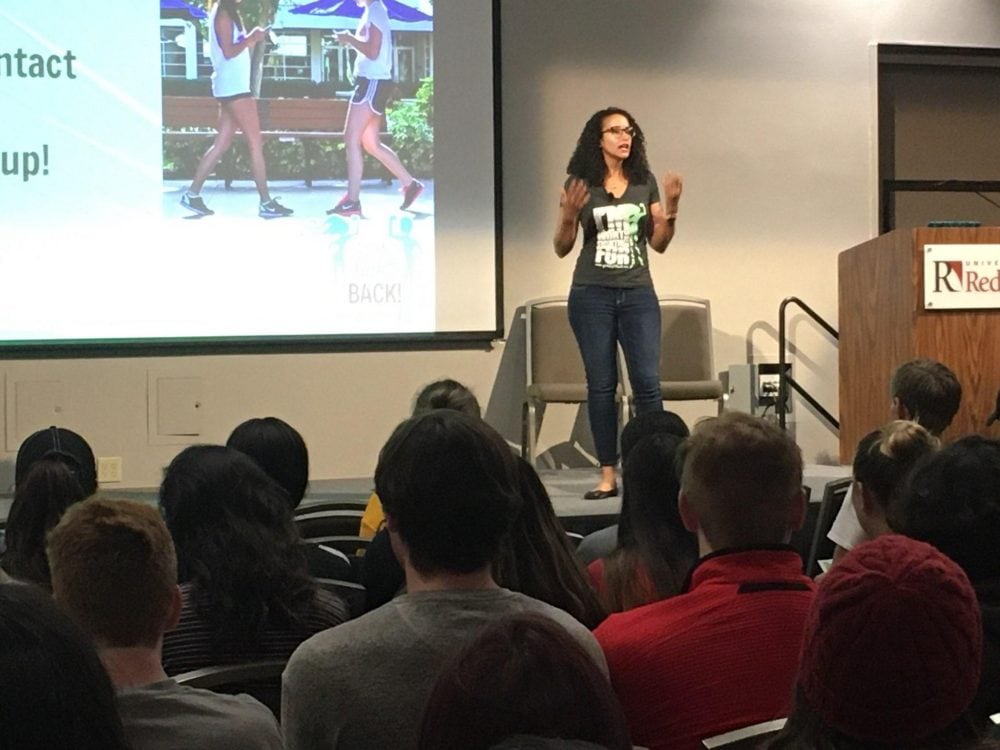
“If something looks off, give yourself permission to accept what you’re seeing instead of denying it. If we accept what we see as real, then we can start problem-solving how we’re going to handle it.”
Nicole Snell
That kind leads into another question I have for you, Nicole. Since you do have all this expertise and knowledge of self-defense, are there any situations that you wouldn’t put yourself in?
I think it would depend on the context again.
There may be situations when you have to do something or be in a certain place at a certain time… But that doesn’t give anyone the right to act violently toward you or commit a crime against you. I try to make the best choices that I can.
I like to night-hike and people tell me all the time that’s not safe, but I’m going on trails I know in familiar places and I have emergency gear with me. I also always tell someone where I’m going.
There are so many people in the world that will try to “should” or “don’t” you to death.
Self-defense is about opening up your world. It’s not a list of “don’t do this or that.” It gives you the tools to live your life how you need to, while also helping to keep you safe so you can make the best choices with the information that you have.
All of life is a risk, there’s no guarantee ever. It’s not about giving you guarantees, it’s about answering the question: ‘How can I make the best choices for me, so I can live a full life, be confident and not feel like I’m limiting myself?’
I think that perfectly ties into what you said about intuition. Having those tools and that knowledge enables you to judge for yourself what’s safe and what isn’t.
I did a hike a few months ago that I hadn’t done before. It was still light outside, I started walking and the trail was really overgrown. I mean, just a lot of bushes and it was hard to get through.
I turned around after a half-mile because I was like, this is just ridiculous. I haven’t been on this trip and I don’t know where it goes. The sun’s going down soon. I don’t need to be bitten by a rattlesnake in all this overgrown bush. I’ll go explore that another day.
Just because it’s light outside doesn’t necessarily mean you’re safe. There’s no guarantee. You have to take things as a day-by-day situation.

“Even if you’re hiking with a group, the hike is still yours. It’s your feet hitting the ground, your lungs are taking in the air, your eyes seeing what’s around you. Other people around you may be sharing that experience, but it’s still very personal.”
Nicole Snell
I personally think there’s something really beautiful about having shared experiences with others outside, but I would love it if you could talk about the value of doing solo adventures and solo hikes. What does being in nature all by yourself mean to you?
I’ve always had a connection to nature and I really can’t explain it, other than I just feel so connected and so at peace with it.
When I’m on the trail and see a horned lizard or a big desert iguana or maybe a red-tailed hawk that’s sitting closer than I’ve ever seen, I get so excited. I just take a moment and realize, I’m a part of this—we’re all connected in this world and there’s so much beauty around us.
I love going out and doing things solo because I like the solitude and I feel like hiking and the outdoors is meditative for me. But even if you’re hiking with a group, the hike is still yours. It’s your feet hitting the ground, your lungs are taking in the air, your eyes seeing what’s around you. Other people around you may be sharing that experience, but it’s still very personal.
I feel very similarly about nature and wildlife. When I’m out in nature and immersed in a place, overwhelmed by its beauty, I always want everyone to be able to experience that feeling. Being out in nature can be extremely powerful. I love that you’re doing something to allow people to connect with nature in ways they might not have before.
When I’m out by myself hiking, I just feel like this world and the outdoors is such a magical place and there’s so much to see. It doesn’t matter where I am. Whether I’m in Bryce Canyon, Joshua Tree National Park or, you know, diving in the Channel Islands or hiking in a rain forest in Australia, I love all of it.
I just love being able to experience things on my own terms, go where I want, stay as long as I want. I’m not dependent on anyone else. I do it and experience it in ways that are meaningful to me.
Finally, is there a place or a couple places that you really connect with? You’ve been to a lot of different places and beautiful landscapes. Is there one that pulls on your heartstrings a little bit more than others?
New Zealand’s, hands down. Love it!
Okay, so my goal is to move to Zealand. I want a ranch with a few horses. Although I only went to the North Island, I just loved it. So, I haven’t even seen the South Island yet, but I just adore New Zealand. And as a second place… Japan.
Who Is Nicole Snell?
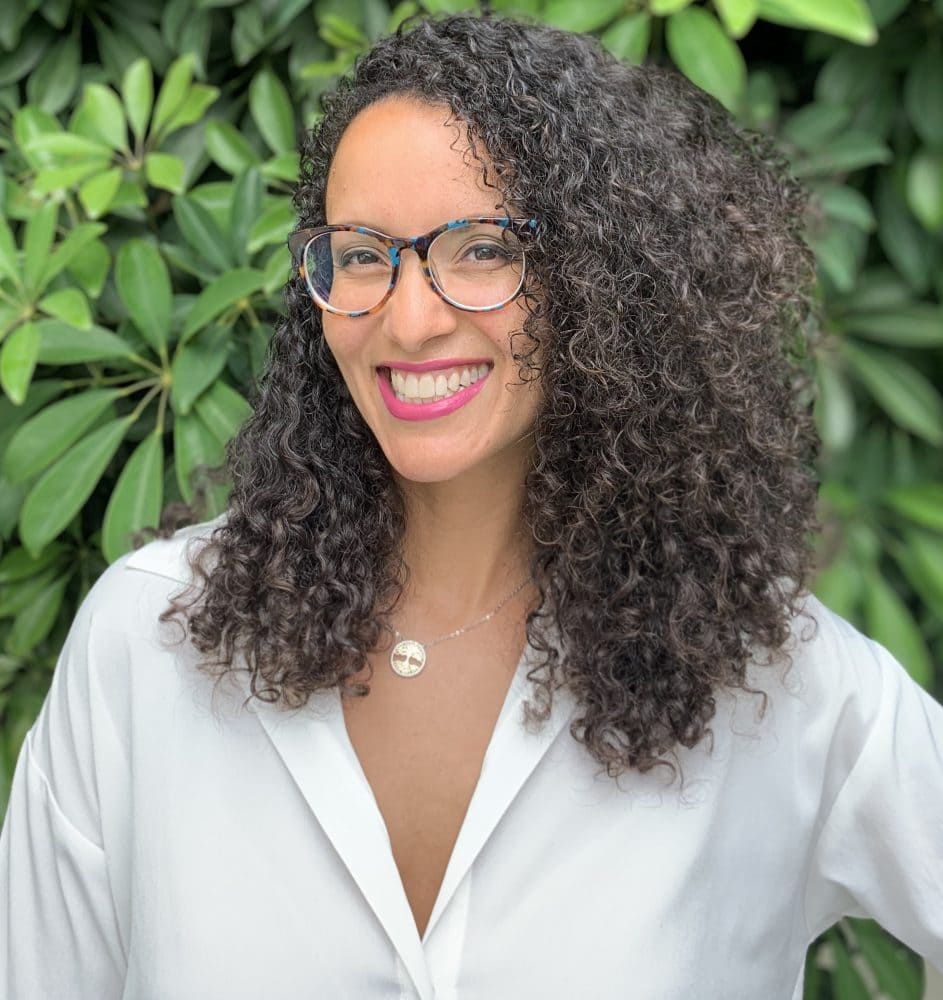
Nicole Snell is the owner of Girls Fight Back, a world-renowned personal safety and self-defense workshop. She’s also a lead instructor and board member at IMPACT Personal Safety.
Additionally, she’s a hike leader for Black Girls Trekkin’ and advocates for diversity and inclusion in the outdoors.
Nicole has years of experience teaching workshops around the globe and focuses her work on sexual assault and violence prevention, personal safety and empowerment.
She’s combined her two passions of teaching self-defense and her love for the outdoors into her creation of the IGTV and Youtube series, “Outdoor Defense.”
Links
- Girls Fights Back: https://www.girlsfightback.com/
- IMPACT Personal Safety: https://www.impactpersonalsafety.com/
- Black Girls Trekkin’: https://blackgirlstrekkin.com/
- Outdoor Defense on IGTV: https://www.instagram.com/adventuresofnik/channel/


